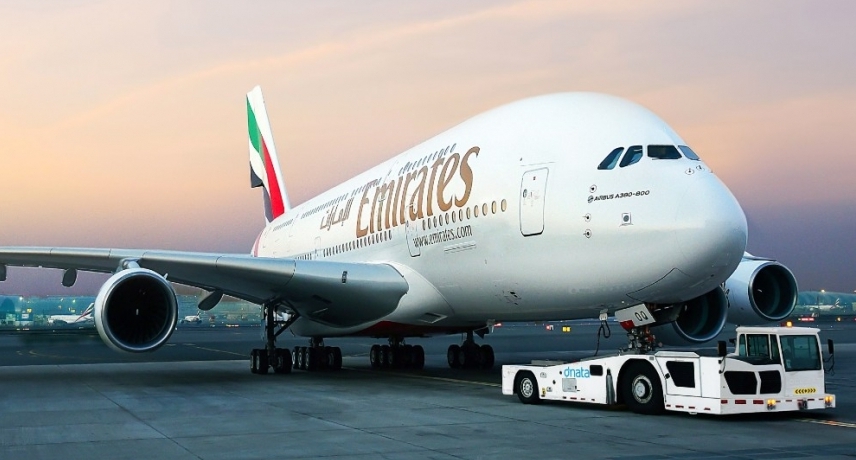Emirates SkyCargo contributes to 60% of group’s total revenue in FY 2020-21
The Emirates Group posted a loss of AED 22.1 billion for the financial year ended March 31 compared with an AED 1.7 billion profit for last year.

- Emirates’ total passenger and cargo capacity declined by 58 percent to 24.8 billion ATKMs at the end of 2020-21.
June 16, 2021: The Emirates Group posted a loss of AED 22.1 billion ($6 billion) for the financial year ended March 31 compared with an AED 1.7 billion ($456 million) profit for last year. This is the first year of loss in over 30 years caused by a significant drop in revenue, fully attributed to the impact of Covid-19 related flight and travel restrictions throughout its entire financial year 2020-21.
Emirates SkyCargo put in a stellar performance by rapidly responding to new demand in a changed global marketplace, contributing to 60 percent of the airline’s total transport revenue.
Emirates SkyCargo quickly scaled up operations and rebuilt its cargo network to meet strong demand from shippers who faced a capacity crunch when the pandemic forced airlines to drastically reduce flights. It supplemented its existing freighter capacity by bringing into service 19 “mini freighters” - modified B777-300ER passenger aircraft with seats in the economy cabin removed to make room for more cargo. The cargo division also introduced new loading protocols to safely utilise overhead bins and passenger seats to carry cargo.
With the strong demand in air freight throughout the year, Emirates’ cargo division reported a revenue of AED 17.1 billion ($4.7 billion), an increase of 53 percent over last year.
Freight yield per freight tonne kilometre (FTKM) increased strongly by 88 percent, due to the unique pandemic situation which led to significantly reduced cargo capacity in the market worldwide.
Tonnage carried decreased by 22 percent to reach 1.9 million tonnes, due to the reduced available bellyhold capacity for the entire year. At the end of 2020-21, Emirates’ SkyCargo’s total freighter fleet stood unchanged at 11 B777Fs.
In 2020-21, the group collectively invested AED 4.7 billion ($1.3 billion) in new aircraft and facilities, the acquisition of companies, and the latest technologies to position the business for recovery and future growth.
Sheikh Ahmed bin Saeed Al Maktoum, chairman and chief executive, Emirates Airline and Group, said, “The Covid-19 pandemic continues to take a tremendous toll on human lives, communities, economies, and on the aviation and travel industry. In 2020-21, Emirates and dnata were hit hard by the drop in demand for international air travel as countries closed their borders and imposed stringent travel restrictions.”
Emirates’ total passenger and cargo capacity declined by 58 percent to 24.8 billion ATKMs at the end of 2020-21.
During the year, Emirates reactivated its strategic codeshare partnership with flydubai, and entered into agreements with new partners TAP Air Portugal, FlySafair, and Airlink in South Africa, to expand connectivity for its customers.
With significantly reduced and constrained capacity deployment across most markets, Emirates’ total revenue for the financial year declined 66 percent to AED 30.9 billion ($8.4 billion). Currency fluctuations this year had no significant impact on airline revenue.
Due to ongoing pandemic-related flight and travel restrictions, the airline reported a loss of AED 20.3 billion ($5.5 billion) after last year’s AED 1.1 billion ($288 million) profit, and a negative profit margin of 65.6 percent. This includes a one-time impairment charge of AED 710 million ($193 million) mainly relating to certain aircraft which are currently grounded and are not expected to return to service before their scheduled retirement within the next financial year.
The impact of Covid-19 was felt across all dnata businesses, and in 2020-21 dnata recorded a loss of AED 1.8 billion ($496 million) for the first time. This includes impairment charges of AED 766 million (209 million) on goodwill and other intangible assets across all its divisions.


